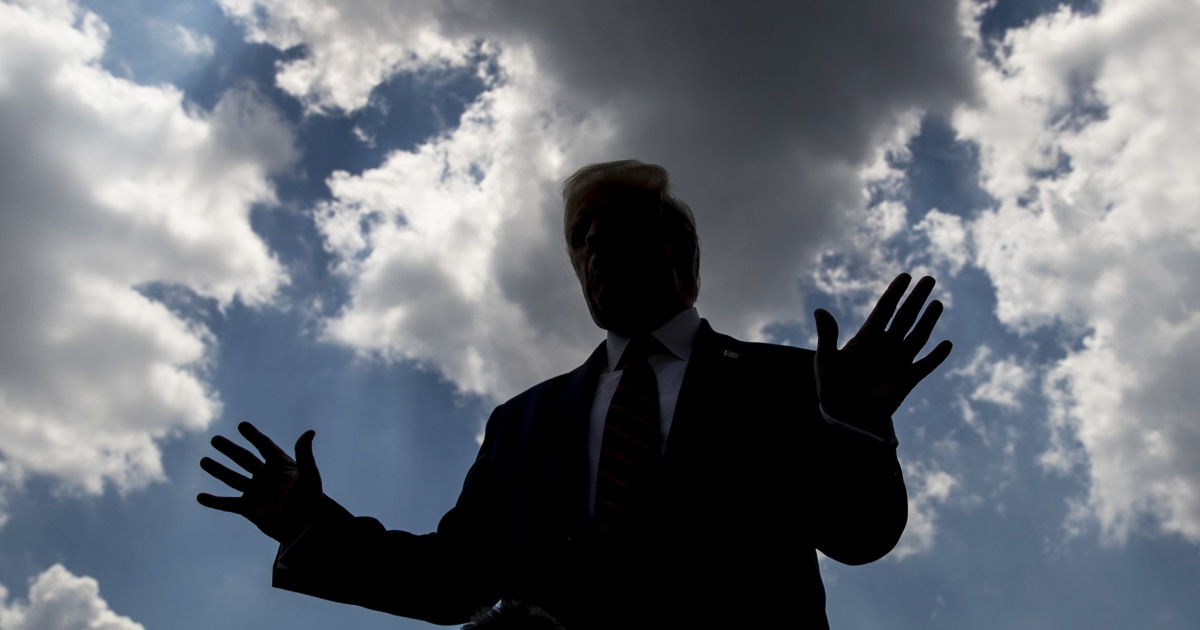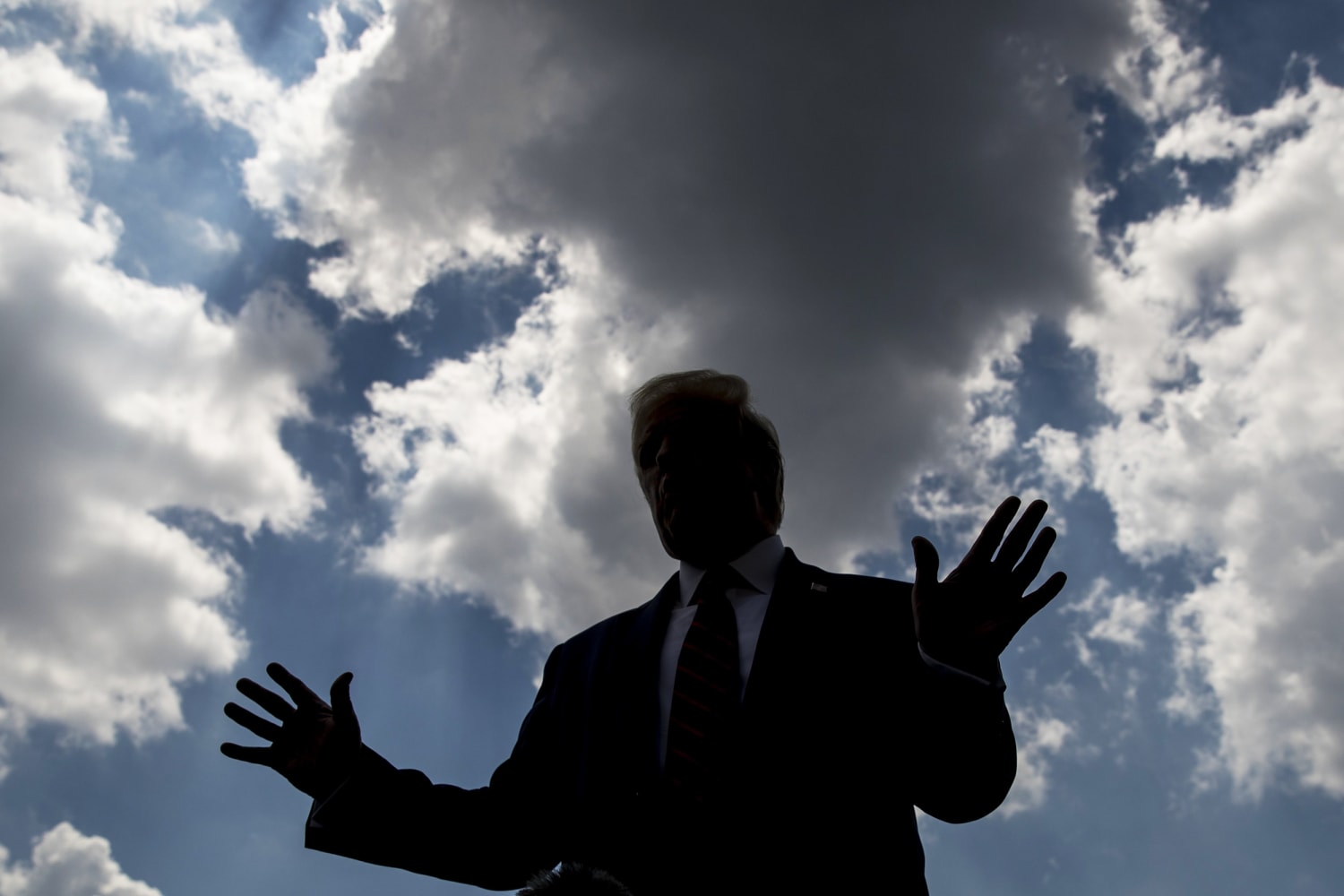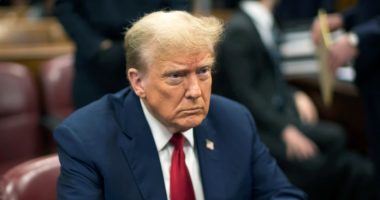
The criminal investigation into Donald Trump’s financial dealings is entering a new and potentially perilous phase for the former president.
Trump had fought for more than a year to keep his records out of the hands of Manhattan District Attorney Cyrus Vance. But after a Supreme Court decision this week cleared the way for the documents’ release, they have been given to Vance’s investigators.
Now comes the hard part, according to former prosecutors.
Vance has enlisted outside experts, including a forensic consulting firm, to help pore over the vast collection of records in search of any improprieties.
“This is an exercise in very, very detailed digging in areas that are, for most of us, very arcane,” said Anthony Siano, who worked on financial fraud cases in his 14 years as a federal prosecutor in Manhattan and Brooklyn.
“There’s no magic to this,” added Siano, who is now a defense lawyer. “It’s incredibly tedious work.”
What will the investigators be looking for?
The materials that Trump fought to keep secret go far beyond his tax returns. Mazars USA, Trump’s longtime accounting firm, was expected to turn over “any and all statements of financial condition, annual statements, periodic financial reports, and independent auditors’ reports,” according to court documents.
Several million pages of documents were handed over to Vance’s office when the subpoena was enforced on Monday, a person familiar with the matter told NBC News.
The records are likely to provide prosecutors with a trove of valuable material, said Andrew Weissmann, a former federal prosecutor.
“The value of the Mazars documents is not in the disclosure of tax returns: that is available to law enforcement from the tax authorities,” said Weissmann, an NBC News legal analyst who previously led the prosecution of former Trump campaign manager Paul Manafort.
“Accounting records enable a prosecutor to see how the reported tax numbers were calculated. The underlying data is key to proving criminal intent, as it was in the Manafort investigation.”
Manafort was sentenced to more than seven years in prison for a range of offenses, including bank and tax fraud; Trump pardoned him in December.
Once Vance has the documents, experts said the forensic accountants that Vance’s office hired for the case, FTI Consulting, will likely set out to build an expansive timeline using Trump’s tax records, bank documents and communications between banks and his tax preparers.
They will zero in on any discrepancies between the information presented to banks and those provided to tax authorities, according to the former prosecutors. Trump has been accused by his former lawyer Michael Cohen and others of inflating his assets when seeking a loan and devaluing them in statements to the government to avoid taxes.
“The tax returns can also help illuminate whether other financial documents are false,” said Chuck Rosenberg, a former federal prosecutor and NBC News legal analyst.
“If the value of a particular property is low on a tax return (to avoid taxes) but high on a loan application (to demonstrate credit worthiness) that certainly raises questions.”
Court filings indicate that Vance is pursuing a broad investigation that includes the possible falsifying of business records as well as insurance and tax fraud.
Among the Trump assets known to be under scrutiny already is Seven Springs estate, a sprawling property in Westchester County, N.Y. Vance subpoenaed documents from three towns that the property runs through after New York Attorney General Letitia James opened a civil investigation into whether the Trump Organization inflated the value of the 213-acre spread and three other properties in order to receive loans, as well as tax benefits from the donation of a conservation easement.
Will the investigation focus only on paperwork?
No. Witnesses will be crucial to the investigation — anyone who had a hand in preparing the documents or has any knowledge of potential misrepresentations.
“The problem for prosecutors is that there are likely many layers between Trump and his tax return — accountants and bookkeepers and lawyers who all had some role in compiling the returns and valuing assets,” Rosenberg said.
“These multiple layers require lots of work and lots of interviews by agents and prosecutors to figure out how the returns were assembled and if they are demonstrably and intentionally false. This was not Trump with a laptop on TurboTax, and so it will take some time.”
Vance’s prosecutors will almost certainly seek to “flip” certain witnesses who may have criminal exposure, the former prosecutors said. Getting an insider to plead guilty and agree to cooperate in the investigation could be pivotal, Weissmann said.
“Documents alone are rarely enough to prove a criminal case,” Weissmann added. “They can be powerful corroboration, but a cooperating insider or tape recordings are needed to meet that standard of proof.”
How long could this process take?
Several months, at least.
Trump’s tax records, some of which were previously obtained by The New York Times, are known to be highly complex. Even with a team of investigators working around the clock, it will likely take a long time for them to develop a comprehensive understanding of Trump’s financial records, the former prosecutors said.
Potential complicating factors may include subjective line items that might seem unusual but may not be clear indicators of wrongdoing.
For instance, the experts said Trump or his corporation may value one of his properties at one amount and prosecutors might come to a different amount but that may not be enough to prove fraud.
Instead of trying to prove a complex tax evasion case, Rosenberg and Weissmann said prosecutors are more likely to focus on clear cut cases of intentional misrepresentations.
“Something like the purposeful omission of a foreign bank account, for instance,” Rosenberg said. “A criminal tax case almost never turns on more esoteric tax provisions like depreciation schedules or net operating loss carryforward rules.”
What about the Stormy Daniels episode?
Vance’s investigation was launched after it was disclosed that Cohen, Trump’s former lawyer, paid Stormy Daniels $130,000 to keep quiet about her claim that she had an affair with Trump, an allegation he has denied.
But court filings indicate that the case extends well beyond the payments to Daniels.
Since the payment to Daniels involved a federal election — the 2016 presidential contest — it’s unlikely that Trump faces any campaign finance exposure in the Vance case, experts said. But depending on how the payment was recorded by Trump or the Trump Organization, investigators are likely to scrutinize it for potential tax filing violations, according to the former prosecutors.
Source: | This article originally belongs to Nbcnews.com









